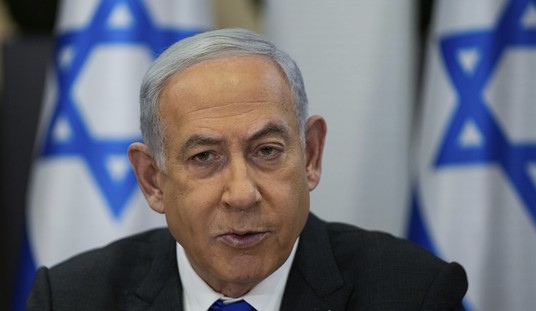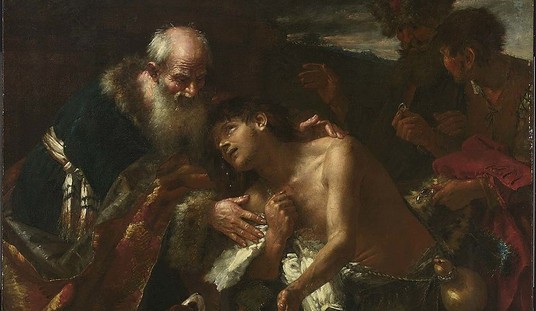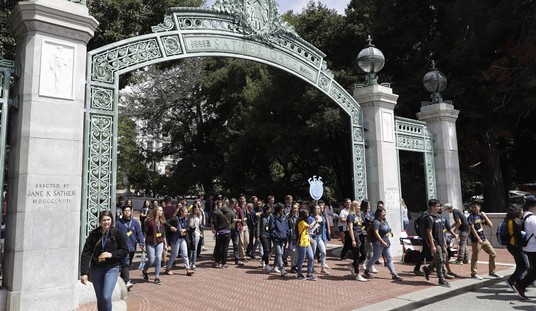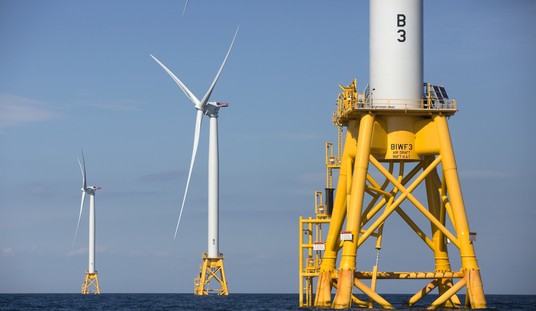Is it really? We’re ten months away from the first meaningful caucuses and twenty months away from the general election in 2012 to challenge Barack Obama for the presidency. Gallup looks at the polling among potential Republican nominees since Eisenhower, which emphasizes the point:
The wide-open battle for the 2012 Republican presidential nomination — with nearly a three-way tie among Mike Huckabee, Sarah Palin, and Mitt Romney — is quite different from the typical pattern observed in past Republican nomination contests. In Gallup polling since 1952, Republican Party nomination races always featured a clear front-runner at this stage of the campaign, and in almost all cases, that front-runner ultimately won the nomination.
Between 1952 and 2008, there were nine open races for the Republican presidential nomination — that is, years when a sitting Republican president was not seeking re-election. Additionally, in 1976, incumbent President Gerald Ford faced a strong challenge from Ronald Reagan. Thus, since 1952, the Republicans have had 10 competitive races for the presidential nomination.
Across these 10 elections, 2008 is the only year in which the eventual nominee, John McCain, achieved front-runner status relatively late in the campaign cycle. In the other nine, the nominee rose to the top of the pack in the year prior to the election, and in eight of those elections, the nominee was the front-runner by March.
Interestingly, the sequence has two anomalies. John McCain trailed Rudy Giuliani by 17 points in Gallup polling at this point in 2007, but ended up outlasting everyone to get the nomination. In 1979, Reagan only had a five-point lead over Gerald Ford, which recalls the discomfort of the GOP establishment with Reagan even after Ford’s futile attempts to hold office in 1976.
Otherwise, the history of the GOP in open cycles is to give the nomination to the candidate perceived to be next it line. But in this year, that could describe all three of the candidates leading the polling so far. Huckabee and Romney finished second and third in 2008’s primaries in delegates, and Palin ran on the ticket. However, more and more people wonder whether Huckabee or Palin will actually run — and whether Romney will suffer as a result:
Huckabee has insisted that he be taken seriously as a contender in interviews, but he appears to bedoing little to prepare for a run. Politico’s Mike Allen recently noted that neither Palin “nor anyone on her behalf, is courting top donors, early-state activists or experienced operatives — all of whom are getting locked down, day by day.” That leaves her entry far from a sure thing. …
After months of polling showing Romney, Huckabee, and Palin each drawing the largest chunks of national Republicans, any dropouts would have strong implications for the second tier of possible candidates who do not have previous experience from 2008, such as Pawlenty, Haley Barbour, and Rick Santorum. Huckabee or Palin’s absence would free up a large chunk of socially conservative and evangelical voters, who are a key demographic in Iowa and who Romney struggled to court in 2008. If doubts from the previous election linger in 2012, these voters could prove a force by consolidating behind one of the less established candidates, elevating one of them into a two-man race with Rommey.
The past few weeks have offered a solid preview of how this dynamic might look against Romney, especially for Pawlenty. The Minnesota governor slammed the health care reform law’s individual mandate in his keynote speech at CPAC last month, which many interpreted as a dig at Romney’s similarly crafted health care law in Massachusetts. Pawlenty is going out of his way to court Tea Party activists, speaking at a national convention in Arizona recently while local activists say his are aides aggressively courting the grassroots in Iowa. He’s also made religion a major theme in speeches and with Mike Pence out of the race, a candidate many considered especially well-suited to court Iowa evangelicals, there’s an even greater opening for him to woo social conservatives unsure about Romney.
I’ve heard similar analyses from conservatives as well, who think Romney will end up getting shellacked in the primaries if both Huckabee and Palin pass on 2012. David Brooks recently wrote about it as well. The lack of ground action by Huckabee certainly seems indicative of at least some hesitation. In Palin’s case, it’s probably less indicative, as she can tap into the Tea Party organizing efforts that Palin routinely conducts and assists; she can afford to wait longer to jump in, too, because of her already-high name recognition and draw. Romney will still have considerable resources, but will find it more difficult to position himself as the conservative choice in a field dominated by sitting or recent governors without a RomneyCare on their records. The same is true of Newt Gingrich — and Gingrich’s entry might have both men competing for similar voters.
Meanwhile, even Romney is delaying his entry into the Iowa sweepstakes, so all of this may be a little premature anyway:
The race to the White House begins in Iowa this week. Five possible presidential contenders will be in Iowa Monday to grab the support of caucus-goers.
Three of the five have already made several visits. Those include former Minnesota Gov. Tim Pawlenty, former U.S. House Speaker Newt Gingrich and former Pennsylvania Sen. Rick Santorum.
The two other potential candidates include businessman Herman Cain, best know as the former Godfathers Pizza CEO, and former Louisiana Gov. Buddy Roemer.
Actually, the analysis of Gallup misses the important context of the present cycle. Conservatives are less focused on the 2012 cycle at the moment than they are on Congress and the budget. Usually an off-year doesn’t provide much in the way of political fireworks, but the biggest issues on the conservative agenda are ObamaCare and stopping the massive deficit spending that has us on the road to our big, fat Greek default. The 2012 election is still a sideshow at the moment, and most of the grassroots activity now focuses on keeping Republicans in Congress on track to honor their campaign pledges and conduct serious spending reforms.
Otherwise, Gallup’s analysis is mostly good news. The last thing the GOP needs now is another anointing as we saw in 1996 and arguably in 2008. If the potential candidates have to work hard for support, then we’re much more likely to get a better candidate out of the process.







Join the conversation as a VIP Member